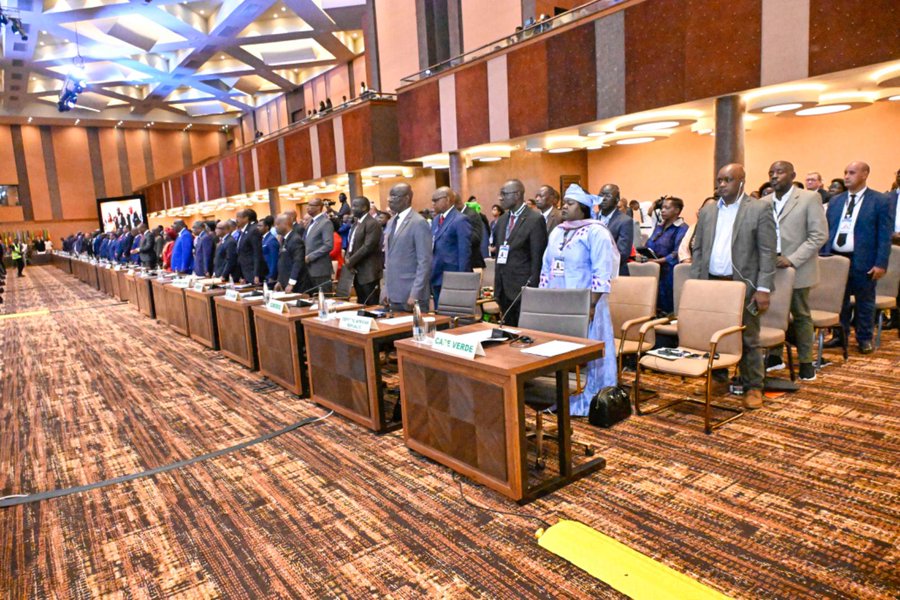KAMPALA, January 10, 2025 –– Ministers of Agriculture from the African Union’s 55 Member States have convened in Kampala, Uganda, for a three-day Extraordinary Summit of the African Union [AU].
The summit, which will culminate in the adoption of the Kampala Declaration, aims to launch a transformative ten-year strategy and action plan to advance the Malabo Declaration of 2014 on agricultural growth, prosperity, and improved livelihoods.
The Comprehensive Africa Agriculture Development Programme [CAADP] Strategy and Action Plan 2026–2035, developed over ten months, outlines a roadmap for sustainable agri-food systems across Africa.
Drafted with input from regional economic communities, African experts, farmers’ organisations, private sector actors, youth, and women in agriculture, the strategy has undergone rigorous review, including by the AU’s Specialised Technical Committee on Agriculture, Rural Development, Water, and Environment.
Aligned with the AU’s Agenda 2063, the strategy seeks to enhance food security, drive economic growth, and improve livelihoods by leveraging investments, fostering partnerships, and empowering smallholder farmers.
It emphasises sustainable practices, climate-resilient agriculture, and reduced dependence on food imports.
Africa faces pressing food security challenges, exacerbated by climate change, population growth, conflicts, and economic disruptions. Over 280 million Africans suffer from chronic hunger, while food systems struggle to meet rising demands.
The CAADP strategy aims to address these issues by promoting climate-smart agriculture, reducing food waste, enhancing infrastructure, and bolstering regional trade.
Speaking at the opening session, Uganda’s Prime Minister, Robinah Nabbanja, highlighted Africa’s agricultural potential.
She lamented the continent’s reliance on costly food imports, amounting to USD 100 billion annually, despite its abundant resources. “This summit must generate actionable solutions for Africa to feed itself sustainably,” she urged.
H.E. Ambassador Josefa Sacko, AU Commissioner for Agriculture, emphasised the strategy’s transformative goals, including increasing food production, expanding value addition, creating jobs, and building resilient agri-food systems.
She stressed the importance of inclusivity, ensuring marginalised groups, women, and youth have equitable access to resources.
Ethiopia’s Minister of Agriculture, Dr. Girma Amente, outlined Ethiopia’s success in integrating the CAADP framework into its National Agricultural Investment Plan [NAIP].
By increasing public agricultural investment, Ethiopia has achieved consistent growth in crop yields and livestock production while improving resilience against climate shocks.
Uganda’s Minister of Agriculture, Frank Tumwebaze, who chaired the drafting of the strategy, called for swift implementation. “We must transition from planning to execution.
By embracing technology, agro-industrialisation, and climate-resilient practices, we can create meaningful change for our people,” he said.
The summit continues with deliberations by Ministers of Foreign Affairs on January 10, followed by a meeting of Heads of State and Government on January 11.
These discussions aim to solidify commitments and set the stage for actionable steps toward a food-secure Africa.
Buy your copy of thecooperator magazine from one of our country-wide vending points or an e-copy on emag.thecooperator.news
